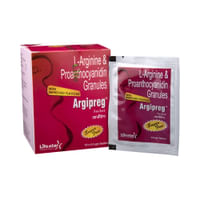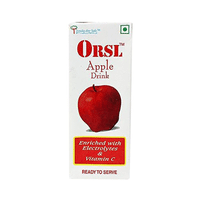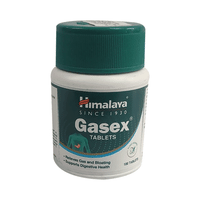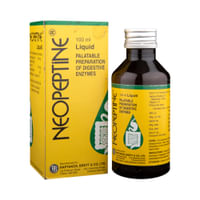food interaction for Abclox
alcohol interaction for Abclox
pregnancy interaction for Abclox
lactation interaction for Abclox
food
alcohol
pregnancy
lactation
Abclox 250mg/250mg Capsule is to be taken with food.
This will help to avoid stomach upset.
None
This will help to avoid stomach upset.
None
CAUTION
Abclox 250mg/250mg Capsule may cause excessive drowsiness with alcohol.
UNSAFE
Information regarding the use of Abclox 250mg/250mg Capsule during pregnancy is not available. Please consult your doctor.
CONSULT YOUR DOCTOR
Information regarding the use of Abclox 250mg/250mg Capsule during breastfeeding is not available. Please consult your doctor.
CONSULT YOUR DOCTOR
SALT INFORMATION FOR Abclox
Amoxycillin(250mg)
Uses
Amoxycillin is used in the treatment of bacterial infections.
How it works
Amoxycillin is an antibiotic. It kills bacteria by preventing them from forming the bacterial protective covering (cell wall) which is needed for them to survive.
Common side effects
Vomiting, Diarrhea, Nausea, Skin rash, Urticaria, Itching, Hemolytic anemia, Decreased white blood cell count (lymphocytes), Colitis, Stevens-Johnson syndrome, Toxic epidermal necrolysis, Crystals in urine, Erythema multiforme, Interstitial nephritis, Dizziness, Convulsion, Hepatitis (viral infection of liver), Cholestatic jaundice, Anaphylactic reaction
Dicloxacillin(250mg)
Uses
Dicloxacillin is used in the treatment of bacterial infections.
How it works
Dicloxacillin is an antibiotic. It kills bacteria by preventing them from forming their own protective covering (cell wall) which is needed for them to survive.
Common side effects
Vomiting, Nausea, Skin rash, Gastrointestinal disturbance, Urticaria, Abdominal pain, Flatulence, Loose stools, Increased white blood cell count (eosinophils), Renal failure, Renal impairment, Interstitial nephritis, Blood in urine, Protein in urine, Phlebitis, Thrombophlebitis, Pain, Pseudomembranous colitis, Esophageal ulcer, Cholestatic hepatitis, Bronchospasm, Angioedema (swelling of deeper layers of skin), Abnormal liver function tests, Anaphylactic reaction, Neurotoxicity, Agranulocytosis (deficiency of granulocytes in the blood), Hemolytic anemia, Bone marrow depression, Muscle pain, Joint pain, General discomfort, Fever
SUBSTITUTES FOR Abclox
316 Substitutes
316 Substitutes
Sorted By
 Rs. 81.67pay 27% more per Capsule
Rs. 81.67pay 27% more per Capsule Rs. 80pay 25% more per Capsule
Rs. 80pay 25% more per Capsule Rs. 94.38pay 47% more per Capsule
Rs. 94.38pay 47% more per Capsule Rs. 73pay 14% more per Capsule
Rs. 73pay 14% more per Capsule Rs. 57.50save 10% more per Capsule
Rs. 57.50save 10% more per Capsule
Expert advice FOR Abclox
- Amoxycillin is used to treat infections caused by bacteria.
- Finish the prescribed course, even if you start to feel better. Stopping it early may make the infection come back and harder to treat.
- Diarrhea may occur as a side effect. Taking probiotics along with Amoxycillin may help. Talk to your doctor if you notice bloody stools or develop abdominal cramps.
- Stop taking this medicine and inform your doctor immediately if you develop an itchy rash, swelling of the face, throat or tongue or breathing difficulties while taking it.
Frequently asked questions FOR Abclox
Amoxycillin
Q. Can Amoxycillin cause allergic reaction?
Although it is rare but yes, Amoxycillin can cause allergic reaction and is harmful in patients with known allergy to penicillins. Get emergency medical help if you have any of the signs of an allergic reaction: hives; difficulty breathing; swelling of your face, lips, tongue, or throat.
Q. Can the use of Amoxycillin cause diarrhea?
Yes, the use of Amoxycillin can cause diarrhea. It is an antibiotic and it kills the harmful bacteria, however, it also affects the helpful bacteria in your stomach or intestine and causes diarrhea. If diarrhea persists, talk to your doctor about it.
Q. Can I stop taking Amoxycillin when my symptoms are relieved?
No, do not stop taking Amoxycillin and finish the full course of treatment even if you feel better. Your symptoms may improve before the infection is completely cleared.
Dicloxacillin
Q. Can Dicloxacillin cause allergic reaction?
Although it is rare but yes, Dicloxacillin can cause allergic reaction and is harmful in patients with known allergy to penicillins. Get emergency medical help if you have any of the signs of an allergic reaction: hives; difficulty breathing; swelling of your face, lips, tongue, or throat.
Q. How long does Dicloxacillin takes to work?
Usually, Dicloxacillin starts working soon after taking it. However, it may take around 2-3 days to make you feel better while taking Dicloxacillin.
Q. What if I don't get better after using Dicloxacillin?
Inform your doctor if you don't feel better after finishing the full course of treatment. Also, inform him if your symptoms are getting worse while using this medicine.























